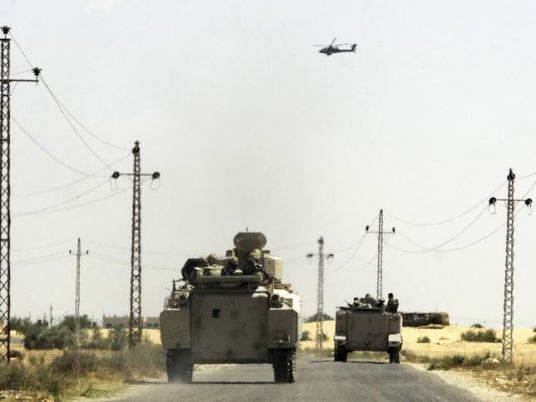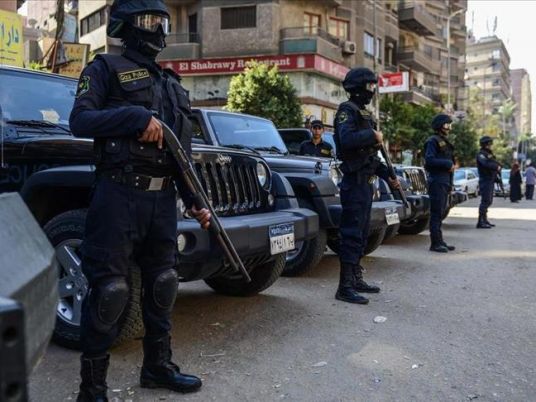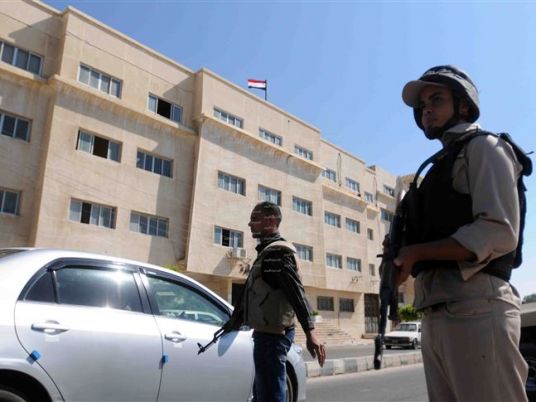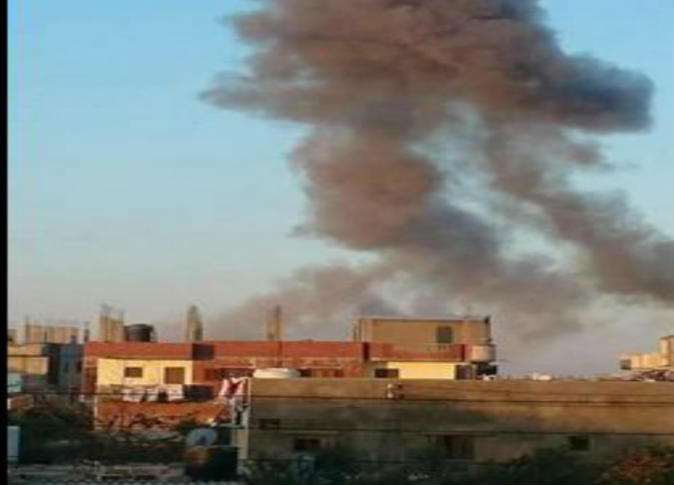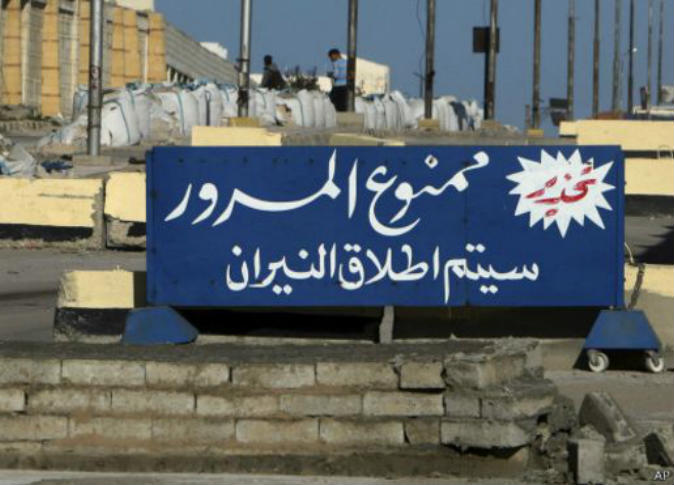
Sayed Torky-Wael Mamdouh
The organization and the attack strategies are the same, but the difference between Ramadi and Sheikh Zuweid is in the army confronting terrorism and in the support of the local population.
Ramadi, which fell in the hands of the Islamic State on May 18, is 110 km away from Baghdad. It fell in less than 48 hours of clashes with newly formed groups armed with American weapons, who raised their black flag on the municipality building after the army fled the city.
The strategy of the terrorist groups in the beginning was to attack and withdraw quickly after causing damage to the enemy. This happened in the attacks by the Sinai Province group, who had paid allegiance to IS in 2014, on military checkpoints in Sinai. Then the strategy changed from a quick withdrawal to clashes extending for hours before withdrawing. The next step would be clashing and taking over.
Testimonies of Sheikh Zuweid residents confirmed what the official spokesperson of the armed forces said following recent attacks that the aim was to take over the city and raise the flag on administrative buildings, which the group did on some public buildings and posted on the Internet to give the impression that they were holding the city.
IS had incorporated other jihadist organizations, such as Al-Tawhid Wal Jihad, Al-Qaeda in Mesopotamia and Al-Mujahideen, before it proclaimed itself as the Islamic State.
The same happened with the Al-Mujahideen Shura Council group, which had incorporated other terrorist organizations, such as Al-Salafia Al-Jehadia and Ansar Beit al-Maqdis, before it changed its name to the Sinai Province.
Mamdouh al-Sheikh, a researcher specializing in Islamic movements, attributes the resistance of Sheikh Zuweid to the nature of the Egyptian army, which is different from that of its Iraqi counterpart, and to the support of the local population, which was absent in Iraq. Proof is that they killed Mohamed Ebada Qwaider, a resident of Sheikh Zuweid, when he resisted terrorists who were shooting at a military checkpoint from the roof of his house.
Although the Sinai Province group has relatively advanced weapons, al-Sheikh believes that the open border of Al-Anbar in Iraq makes access to sophisticated arms easier than in Sheikh Zuweid. He rules out the possibility of smuggling modern weapons through the tunnels between Rafah and the Egyptian border because these are used for smuggling goods into Gaza, and not vice versa.
Attacking several points at the same time and filming it with great professionalism to post on social networking sites is characteristic of the style of IS and its affiliates, particularly the Sinai Province group. But the similarity of technique did not produce similar results, as the last attack on Sheikh Zuweid has failed, although it was carried out by a larger number of militants than ever before. Also, IS was able to take over Ramadi because the Iraqi army left the battlefield.
The Sinai Province group knew that it would not be able to take over the city. So why did it take the risk?
Mamdouh al-Sheikh believes that is was not necessarily a linear evolution in attack methods, but could just have been to say that they are still there, given the painful blows they received from the Egyptian army.
A security source in Sinai, speaking on condition of anonymity, agrees with al-Sheikh, believing the attack was but an attempt to demoralize the army troops and make propaganda, or to gain more experience in the field of direct confrontations in preparation of a future scheme to control the border and gradually crawl towards the rest of the Sinai peninsula.
Activist Mosaad Abu Fagr also posted on Facebook that the attack was a rehearsal to attract fighters to join the group and take over Sheikh Zuweid in the future.
According to Major General Salama al-Gohary, the former commander of the counter-terrorism unit, said the technique of the last attack was too advanced for the Sinai Province group, suggesting that the group could have received logistical support from trained foreign elements that could have come in from the sea or through the tunnels.
He also said that the militants this time killed civilians who refused to allow them to use their houses in the attack, which is a new phenomenon that is similar to IS practices. But he said the Egyptian army is coherent, unlike the armies of Syria and Iraq, which would make it difficult for the terrorists to control Sinai.
Saeed Aatiq, a Sinai activist, said the marginalization policies pursued by former President Hosni Mubarak and the arrest of dozens of young people over the last ten years helped extremist ideas to spread among the people of the border region, who came out of prison after the January 25 revolution.
Edited translation from Al-Masry Al-Youm

